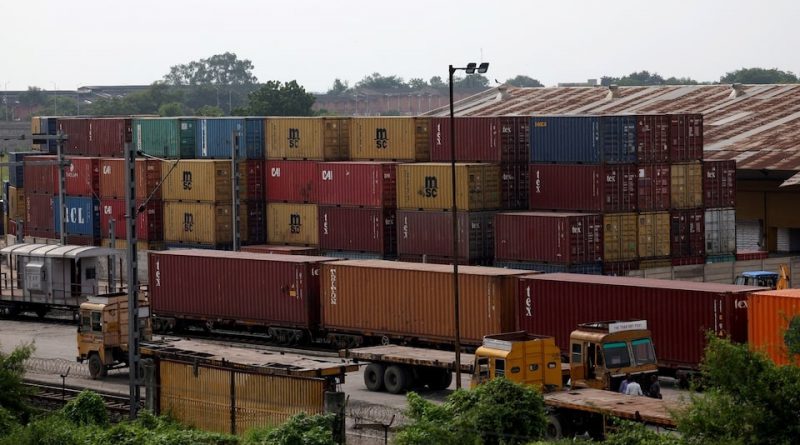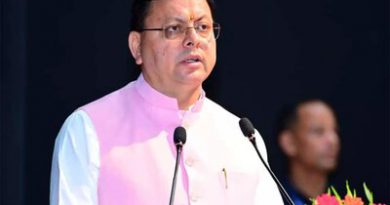Obama-Appointed Judge’s Dissent May Strengthen Trump’s Case in Supreme Court Tariff Battle
As the U.S. Supreme Court reviews the legality of Donald Trump’s tariffs, a dissenting opinion by Judge Richard Taranto, an Obama appointee, could serve as a key reference point for the former president’s defense.
The U.S. Supreme Court is preparing to hear a landmark case that could determine the extent of presidential authority in imposing tariffs under emergency powers.
Former President Donald Trump’s administration has cited a dissenting opinion by Judge Richard Taranto as a central argument supporting the legality of its tariff actions.
While Trump previously lost the case at the U.S. Court of Appeals for the Federal Circuit, his legal team has drawn extensively on Taranto’s 67-page dissent.
Taranto, appointed by former President Barack Obama, argued that Trump acted within the law when he used the 1977 International Emergency Economic Powers Act (IEEPA) to impose tariffs on foreign imports.
This case represents one of the most significant tests of presidential power over trade policy in recent history.
The Supreme Court will now decide whether IEEPA, originally designed for use during national emergencies, grants the president authority to levy tariffs — effectively taxes on imported goods.
Taranto’s opinion diverged sharply from the majority of his peers, most of whom ruled that Trump exceeded his powers under IEEPA.
He concluded that Congress had knowingly delegated broad authority to the president to act swiftly on matters of national economic security.
Trump’s legal team, led by U.S. Solicitor General D. John Sauer, has cited Taranto’s analysis multiple times in Supreme Court filings.
According to legal experts, this dissent may give the justices a “roadmap” for upholding the tariffs as lawful exercises of presidential discretion.
The dispute has wide-ranging implications for U.S. trade policy, potentially affecting trillions of dollars in customs duties.
Tariffs have been a cornerstone of Trump’s economic strategy, used to renegotiate trade deals and apply pressure on nations such as China, Canada, and Mexico.
In August, the Federal Circuit ruled by a 7–4 margin that Trump overstepped his authority in invoking IEEPA for tariff purposes.
However, Taranto and three other judges dissented, saying the law clearly allowed presidents to restrict importation during national emergencies.
Taranto described IEEPA as an “eyes-open congressional choice” to give the president broad powers in foreign and economic matters.
This view contrasts with the majority opinion, which held that the statute was never meant to authorize large-scale tariff actions.
Following the appellate court decision, White House trade adviser Peter Navarro publicly praised Taranto’s reasoning.
He said the dissent provided a clear path for the Supreme Court to rule in favor of the administration.
The legal challenge was brought by a coalition of U.S. businesses and Democratic-led states that argued the tariffs were unconstitutional.
They maintain that only Congress has the power to impose taxes and tariffs and that any delegation of this power must be explicitly defined and limited.
These challengers also invoked the “major questions doctrine,” a legal principle requiring clear congressional authorization for executive actions with major economic or political impacts.
They argue that the president’s use of IEEPA for global tariffs lacks such explicit authorization.
The Trump administration counters that the 1977 law gives the president flexibility to act against economic threats deemed to endanger national security.
Supporters of the tariffs say they are essential tools for protecting U.S. industries and reducing the long-standing trade deficit.
No previous president has used IEEPA to impose tariffs, making this a novel interpretation of the law.
Historically, the statute has been used to freeze assets, impose sanctions, or respond to security threats such as those following the September 11 attacks.
The Federal Circuit’s majority held that “it is far from plain” that the law authorizes tariffs of the kind Trump imposed.
But Taranto argued the opposite — that Congress intentionally granted the president the latitude to act decisively in economic emergencies.
As the Supreme Court prepares to hear arguments, legal scholars note that the outcome could reshape the balance of power between Congress and the presidency.
A ruling in favor of Trump could set a precedent expanding executive control over trade policy, while a loss might reaffirm legislative limits on presidential economic authority.


